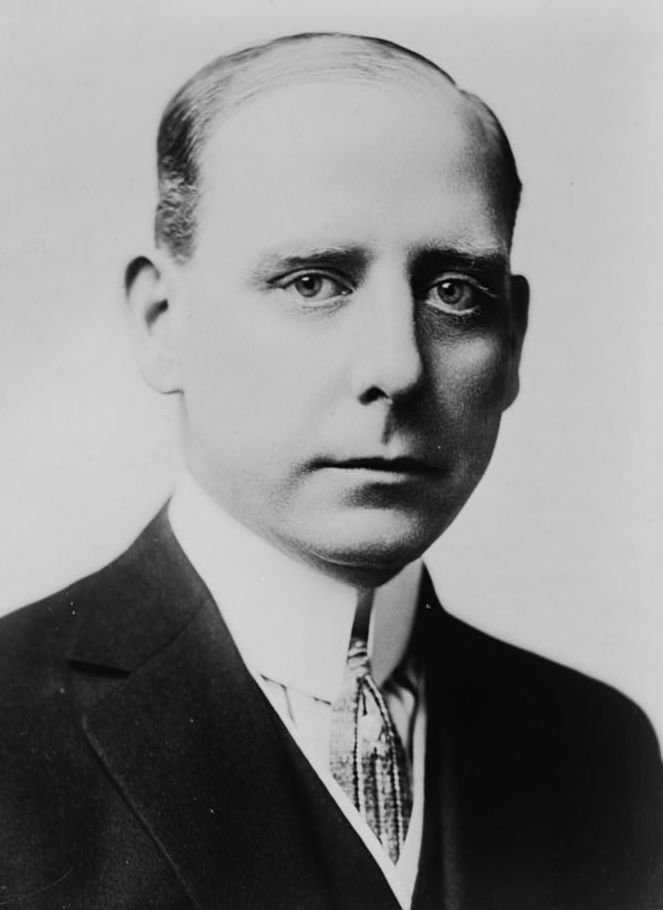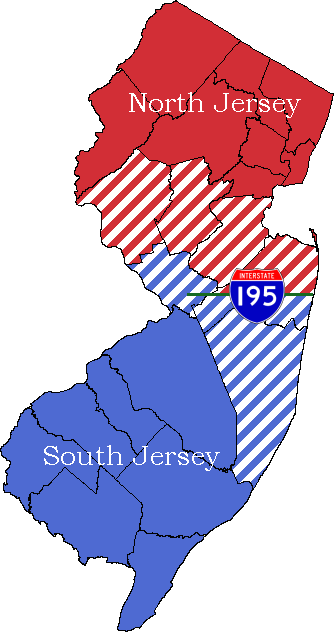|
A. Harry Moore
Arthur Harry Moore (July 3, 1877 – November 18, 1952) was an American Democratic politician and attorney who was the 39th governor of New Jersey, serving three nonconsecutive three-year terms between 1926 and 1941. As of , Moore remains the longest-serving modern Governor of New Jersey and the only Governor popularly elected to three terms in office. He also served a partial term as United States Senator from 1935 to 1938, before stepping down to begin his third term as Governor. Early life Arthur Harry Moore was born in the Lafayette section of Jersey City, New Jersey on July 3, 1877. His parents were Robert White Moore and Martha (née McCoomb) Moore, of Scots-Irish descent.Connors, Richard Biography of A. Harry Moore (PDF) New Jersey State Library Moore, known as "Red," dropped out of local public schools to become a clerk at age thirteen. In his spare time, he continued his education at the Cooper Union in New York City and developed proficiency in bookkeeping and ... [...More Info...] [...Related Items...] OR: [Wikipedia] [Google] [Baidu] |
George Sebastian Silzer
George Sebastian Silzer (April 14, 1870October 16, 1940) served as the 38th governor of New Jersey from 1923 to 1926. Biography He was born on April 14, 1870, in New Brunswick, New Jersey.New Jersey Governor George Sebastian Silzer , . Accessed August 5, 2007. Silzer was a member of the New Brunswick board of aldermen from 1892 to 1896. He was a member of the New Jersey Senate from Middlesex Co ... [...More Info...] [...Related Items...] OR: [Wikipedia] [Google] [Baidu] |
Cooper Union
The Cooper Union for the Advancement of Science and Art (Cooper Union) is a private college at Cooper Square in New York City. Peter Cooper founded the institution in 1859 after learning about the government-supported École Polytechnique in France. The school was built on a radical new model of American higher education based on Cooper's belief that an education "equal to the best technology schools established" should be accessible to those who qualify, independent of their race, religion, sex, wealth or social status, and should be "open and free to all." Cooper is considered to be one of the most prestigious colleges in the United States, with all three of its member schools consistently ranked among the highest in the country. The Cooper Union originally offered free courses to its admitted students, and when a four-year undergraduate program was established in 1902, the school granted each admitted student a full-tuition scholarship. Following its own financial crisis, ... [...More Info...] [...Related Items...] OR: [Wikipedia] [Google] [Baidu] |
Morgan F
Morgan may refer to: People and fictional characters * Morgan (given name), including a list of people and fictional characters * Morgan le Fay, a powerful witch in Arthurian legend * Morgan (surname), a surname of Welsh origin * Morgan (singer), Italian musician Marco Castoldi (born 1972) * Moken, also spelled "Morgan", a seafaring ethnic group in the Andaman Sea Places United States * Morgan, Georgia * Morgan, Iowa * Morgan, Minnesota * Morgan, Missouri * Morgan, Montana * Morgan, New Jersey * Morgan, Oregon * Morgan, Pennsylvania * Morgan, Texas * Morgan, Utah * Morgan, Vermont * Morgan, West Virginia * Morgan, Wisconsin, a town * Morgan, Oconto County, Wisconsin, an unincorporated community * Morgan, Shawano County, Wisconsin, an unincorporated community * Morgan Mountain, Tehama County, California * Mount Morgan (Inyo County, California) * Mount Morgan (Mono County, California) * Mount Morgan (Montana) * Morgan Farm Area, Texas Elsewhere * Mount Morgan (Antarctica), Marie ... [...More Info...] [...Related Items...] OR: [Wikipedia] [Google] [Baidu] |
Village Of Euclid V
A village is a clustered human settlement or community, larger than a hamlet but smaller than a town (although the word is often used to describe both hamlets and smaller towns), with a population typically ranging from a few hundred to a few thousand. Though villages are often located in rural areas, the term urban village is also applied to certain urban neighborhoods. Villages are normally permanent, with fixed dwellings; however, transient villages can occur. Further, the dwellings of a village are fairly close to one another, not scattered broadly over the landscape, as a dispersed settlement. In the past, villages were a usual form of community for societies that practice subsistence agriculture, and also for some non-agricultural societies. In Great Britain, a hamlet earned the right to be called a village when it built a church. [...More Info...] [...Related Items...] OR: [Wikipedia] [Google] [Baidu] |
North Jersey
North Jersey comprises the northern portions of the U.S. state of New Jersey between the upper Delaware River and the Atlantic Ocean. The designation of northern New Jersey with a distinct toponym is a colloquial one rather than an administrative one, reflecting not only geographical but also perceived cultural differences from the southern part of the state, with no official definition.("Of course, part of the problem with understanding New Jersey's enduring regional tension is that few residents can agree on where the northern half of the state end and the southern half begins.") North Jersey is characterized by its position, both geographically and culturally, within the greater New York City metropolitan area and its high level of economic output, emanating from economic engines including Paramus in Bergen County, which has become the top retail ZIP Code (07652) in the United States, with the municipality generating over US$6 billion in annual retail sales; Jersey City, who ... [...More Info...] [...Related Items...] OR: [Wikipedia] [Google] [Baidu] |
Advise And Consent
Advice and consent is an English phrase frequently used in enacting formulae of bills and in other legal or constitutional contexts. It describes either of two situations: where a weak executive branch of a government enacts something previously approved of by the legislative branch or where the legislative branch concurs and approves something previously enacted by a strong executive branch. General The concept serves to moderate the power of one branch of government by requiring the concurrence of another branch for selected actions. The expression is frequently used in weak executive systems where the head of state has little practical power, and in practice the important part of the passage of a law is in its adoption by the legislature. United Kingdom In the United Kingdom, a constitutional monarchy, bills are headed: BE IT ENACTED by the King's most Excellent Majesty, by and with the advice and consent of the Lords Spiritual and Temporal, and Commons, in this presen ... [...More Info...] [...Related Items...] OR: [Wikipedia] [Google] [Baidu] |
New Jersey Senate
The New Jersey Senate was established as the upper house of the New Jersey Legislature by the Constitution of 1844, replacing the Legislative Council. There are 40 legislative districts, representing districts with an average population of 232,225 (2020 figure). Each district has one senator and two members of the New Jersey General Assembly, the lower house of the legislature. Prior to the election in which they are chosen, senators must be a minimum of 30 years old and a resident of the state for four years to be eligible to serve in office. From 1844 until 1965 (when the ''Reynolds v. Sims'' US Supreme Court decision mandated all state legislators be elected from districts of roughly equal population), each county was an electoral district electing one senator. Under the 1844 Constitution, the term of office was three years, which was changed to four years with the 1947 Constitution. Since 1968 the Senate has consisted of 40 senators, who are elected in a "2-4-4" cycle. Senat ... [...More Info...] [...Related Items...] OR: [Wikipedia] [Google] [Baidu] |
Patronage
Patronage is the support, encouragement, privilege, or financial aid that an organization or individual bestows on another. In the history of art, arts patronage refers to the support that kings, popes, and the wealthy have provided to artists such as musicians, painters, and sculptors. It can also refer to the right of bestowing offices or Benefice, church benefices, the business given to a store by a regular customer, and the patron saint, guardianship of saints. The word "patron" derives from the la, patronus ("patron"), one who gives benefits to his clients (see Patronage in ancient Rome). In some countries the term is used to describe political patronage or patronal politics, which is the use of state resources to reward individuals for their electoral support. Some patronage systems are legal, as in the Canadian tradition of the Prime Minister to appoint Senate of Canada, senators and the heads of a number of commissions and agencies; in many cases, these appointments go to ... [...More Info...] [...Related Items...] OR: [Wikipedia] [Google] [Baidu] |
Anti-Saloon League
The Anti-Saloon League (now known as the ''American Council on Addiction and Alcohol Problems'') is an organization of the temperance movement that lobbied for prohibition in the United States in the early 20th century. Founded in 1893 in Oberlin, Ohio, it was a key component of the Progressive Era, and was strongest in the South and rural North, drawing support from Protestant ministers and their congregations, especially Methodists, Baptists, Disciples and Congregationalists. It concentrated on legislation, and cared about how legislators had voted, not whether they drank or not. Founded as a state society in Oberlin, Ohio, in 1893, its influence spread rapidly. In 1895, it became a national organization and quickly rose to become the most powerful prohibition lobby in America, overshadowing the older Woman's Christian Temperance Union and the Prohibition Party. Its triumph was nationwide prohibition locked into the Constitution with passage of the 18th Amendment in 1919. ... [...More Info...] [...Related Items...] OR: [Wikipedia] [Google] [Baidu] |
Arthur Whitney (politician)
Arthur Whitney (July 5, 1871 – November 19, 1942) was an American politician who served in both houses of the New Jersey Legislature and was the Republican nominee for Governor of New Jersey in 1925. Whitney was born in 1871 in Morris Plains, to Stephen and Josephine Whitney. He was educated at St. Paul's School in Concord, New Hampshire, before leaving to work at an iron plant in Harrisburg, Pennsylvania. In 1902 he became a partner at the New York brokerage firm of Goadby & Co. He left the firm in 1916 to enter New Jersey politics."Arthur Whitney, an Ex-Legislator" '''', November 20, 1942. Accessed ... [...More Info...] [...Related Items...] OR: [Wikipedia] [Google] [Baidu] |
Morris County, New Jersey
Morris County is a County (United States), county located in the U.S. state of New Jersey, about west of New York City. According to the 2020 United States census, 2020 census, the county's population was enumerated at 509,285,QuickFacts Morris County, New Jersey United States Census Bureau. Accessed June 24, 2022. an increase of 17,009 (3.5%) from the 492,276 counted at the 2010 United States census, 2010 census,DP1 – Profile of General Population and Housing Characteristics: 2010 D ... [...More Info...] [...Related Items...] OR: [Wikipedia] [Google] [Baidu] |
Prohibition Era
Prohibition is the act or practice of forbidding something by law; more particularly the term refers to the banning of the manufacturing, manufacture, storage (whether in barrels or in bottles), transportation, sale, possession, and consumption of alcoholic beverages. The word is also used to refer to a period of time during which such bans are enforced. History Some kind of limitation on the trade in alcohol can be seen in the Code of Hammurabi (c. 1772 BCE) specifically banning the selling of beer for money. It could only be bartered for barley: "If a beer seller do not receive barley as the price for beer, but if she receive money or make the beer a measure smaller than the barley measure received, they shall throw her into the water." In the early twentieth century, much of the impetus for the prohibition movement in the Nordic countries and North America came from moralistic convictions of pietistic Protestants. Prohibition movements in the West coincided with the advent ... [...More Info...] [...Related Items...] OR: [Wikipedia] [Google] [Baidu] |





_(31023042187)_CROP.jpg)

